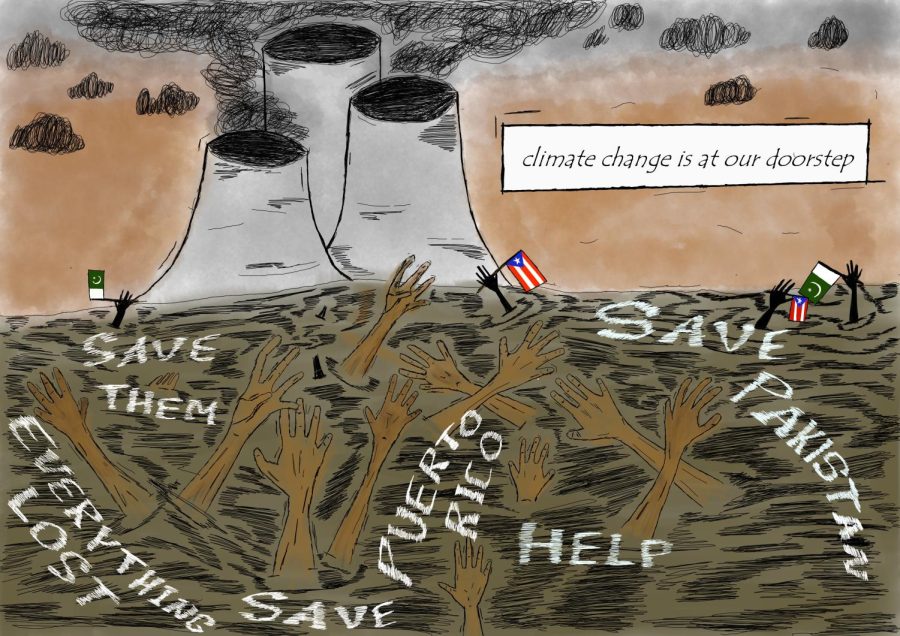Natural disasters or natural consequences
September 27, 2022
In the wake of Hurricane Fiona, Puerto Rico yet again experienced the devastating effects of a natural disaster. The island was first battered by Hurricane Maria in 2017 — images of people in distress, floodwaters surging through residential streets and blackouts far as the eye can see. It had only been five years since Puerto Rico was devastated by Hurricane Maria, which dealt more damage than any other natural disaster in the island’s history.
Due to the quick succession of Hurricane Fiona and Maria, Puerto Rico has had no time to recover. As of now, Puerto Rico’s main source of nutrients — plantains — are destroyed and the island will most likely be unable to produce more for a long time to come. Not only were the plantains destroyed, but all of Puerto Rico’s agriculture was wiped out, leaving the island scarce and hungry. It is safe to say that Puerto Rico cannot afford to be hit by another natural disaster for many years.
Just over 8,100 miles away, another country dealt with its own record-breaking natural disaster. In late August, the Sindh Province in Pakistan experienced torrential rainfall resulting in some of the worst floodings the region has ever seen. In the following weeks, at a United Nations summit, Pakistan’s Prime Minister Shehbaz Sharif argued that “One thing is very clear, what happened in Pakistan will not stay in Pakistan,” implying that the looming presence of climate change is to blame.
“No words can describe the shock we are living through or how the face of the country lies transformed,” Sharif said. “For 40 days and 40 nights, a biblical flood poured down on us, smashing centuries of weather records, challenging everything we knew about disaster and how to manage it.”
Pakistan is underwater, Puerto Rico is disaster-stricken and climate change is evolving. If we do not start taking the necessary steps to reduce our ecological footprint, then disasters like these are going to become the norm. We need to power our homes with renewable energy, invest in energy-efficient appliances, eliminate single-use products and weatherproof homes by sealing windows and doors, insulating unheated crawl spaces and inspecting door weatherstrips.
Aside from reducing our individual ecological footprints, we must invest in political figures who are ready to combat climate change. No longer can we deny the inevitable; natural disasters fueled by climate change will continue to grow in size and power until serious legislative change is made.








